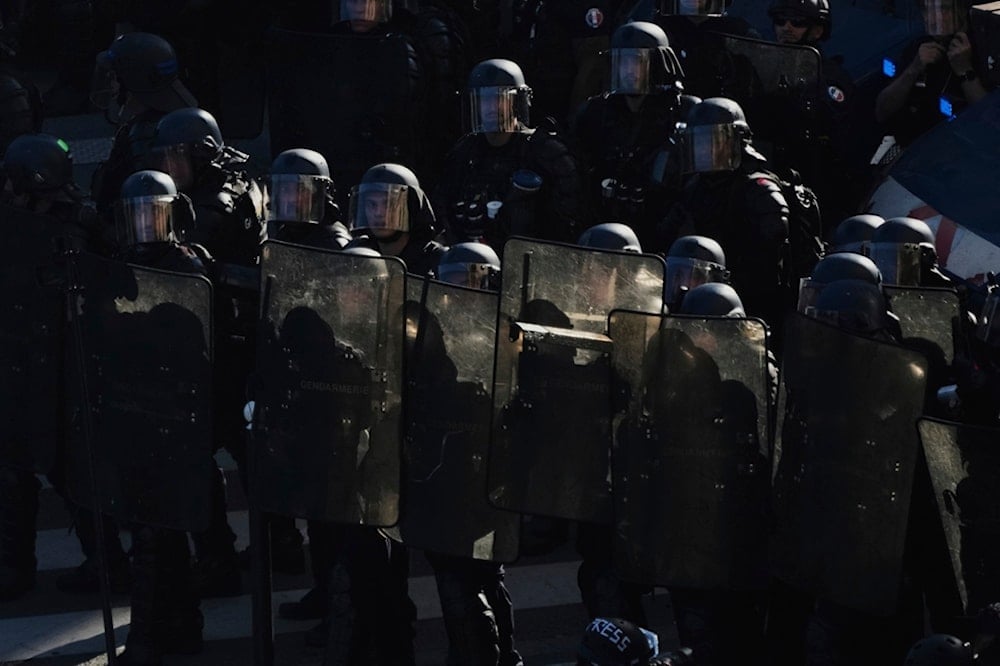Poll: 91% of French want rioters banned from future protests
A CSA poll found 91% of French citizens favor banning detained rioters from future protests and tougher penalties as unrest over spending cuts continues.
-

Police officers stand guard during a demonstration called by major trade unions to oppose budget cuts, in Paris, France, Thursday, September 18, 2025 (AP)
A large majority of French citizens want people detained for rioting to be barred from taking part in future demonstrations, a new poll revealed on Saturday.
According to a CSA survey commissioned by Europe 1, CNews, and Le Journal du Dimanche, 91% of respondents supported banning rioters from joining any future manifestations. The same share backed tougher penalties for violent unrest.
The poll was conducted online on September 18–19 among 1,001 adults in France. No margin of error was provided.
The findings come amid a surge of mass demonstrations and strikes against government plans to cut public spending. On Thursday, French authorities estimated more than 500,000 people took part in protests nationwide, while trade unions put the turnout at over one million.
Earlier this month, more than 700 protest actions were staged across the country under the slogan “Block Everything,” drawing around 200,000 participants. Some rallies led to clashes with police, resulting in hundreds of arrests.
France faces mass strikes
France prepared on Thursday for a day of nationwide disruption as unions launched mass protests against President Emmanuel Macron’s budget policies, threatening transport paralysis and warning of unrest from extremist elements.
Prime Minister Sébastien Lecornu, appointed last week as Macron’s seventh head of government, had vowed to reset relations with voters amid a simmering political crisis. But his arrival has done little to quell resentment over a draft €44 billion ($52 billion) cost-saving budget drawn up by his predecessor, François Bayrou, or over a proposal to eliminate two public holidays.
Union leaders say the government’s policies, along with last year’s controversial pension reform, have eroded public trust. “Colleagues were not fooled by the appointment of Sébastien Lecornu,” said Sophie Venetitay, secretary-general of the Snes-FSU teachers’ union. “It did not calm the anger.”
Wider context
The protests come amid growing political instability. Last week, former PM Francois Bayrou lost a vote of confidence in the National Assembly, following opposition to his 2026 budget framework aimed at cutting €44 billion in public spending. France’s public debt currently stands at 113% of GDP, one of the highest in the European Union.
In response to the crisis, French President Emmanuel Macron appointed Defense Minister Sebastien Lecornu as the new prime minister on Tuesday. Lecornu has been tasked with consulting political parties before forming a new government.
Budget-related political infighting has become a persistent issue in French politics. Last year, the failure to pass the 2025 budget led to the collapse of Michel Barnier’s government after a no-confidence motion united both far-left and far-right parties.
In parallel with the grassroots movement, France’s major trade unions have announced a national day of mobilization on September 18, signaling a broader, more coordinated wave of resistance to the government's economic policies.

 3 Min Read
3 Min Read










